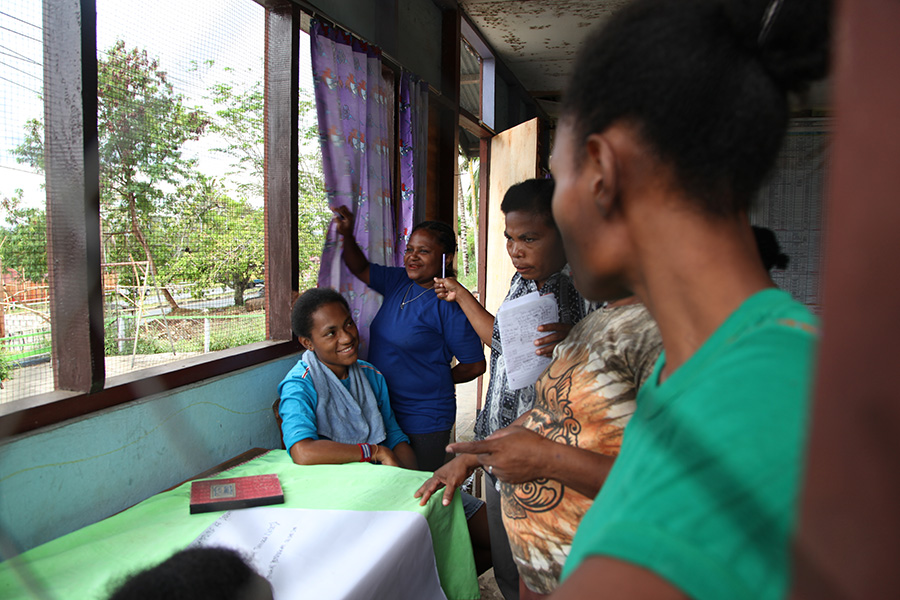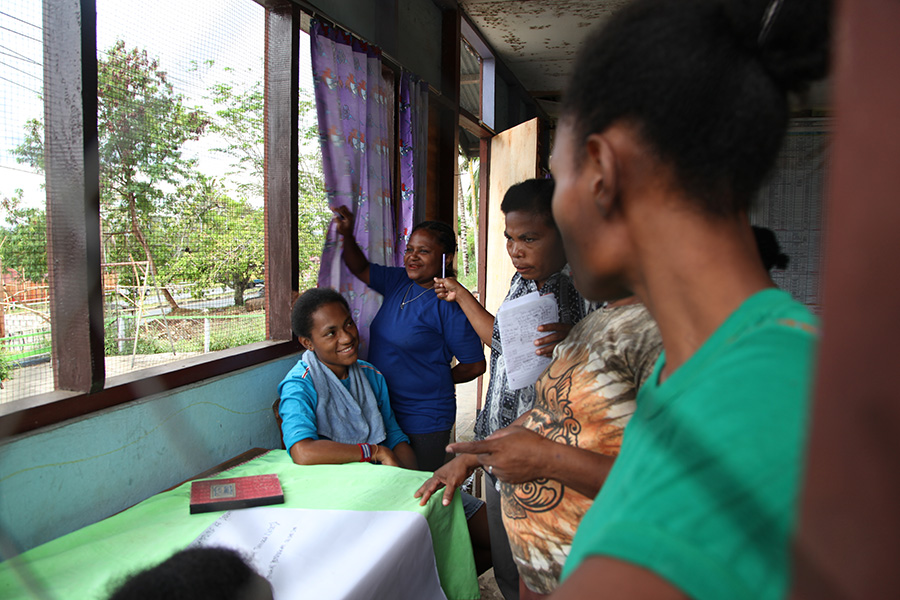
Dinner is late. The laundry isn’t done. The pickles aren’t sour enough. When it comes to reasons for a man to beat his wife, Rem Ran has heard it all.
For most his 40 years, the construction worker saw domestic violence as “a normal part of life” in a nation where, until 2007, girls were taught in school not to challenge husbands via a traditional code of conduct still found in some textbooks.
Now he steps in when domestic disputes erupt in his rural community and is part of a nationwide drive to instil men as advocates for women’s rights, as Cambodia this month also launched a national plan to combat violence against women.
“I’ve seen so much rape and senseless violence against women,” Ran told the Thomson Reuters Foundation during a workshop in Phnom Penh, where about a dozen men from the countryside were learning about gender equality.
“Usually, authorities overlook it – they say it’s a private matter that should be left to the couple at all costs – but we make it a collective issue and we advocate to authorities that it must stop.”
Ran is among 30 men coached by Gender and Development for Cambodia, a non-profit, to identify and root out violence against women by intervening in disputes, holding workshops and acting as a go-to for victims and authorities in communities.
Gender-based violence “comes from a mindset, an idea that is so deeply ingrained that it is almost impossible to retrain”, said Ran.
Campaigners have noted improvements in gender equality in Cambodia, which ranked 89th on the World Economic Forum’s Global Gender Gap Index in 2020 compared to 112th in 2016.
But a series of events in the Southeast Asian nation in 2020 drew condemnation from advocates around the world.
In February, a 39-year-old online vendor was jailed on pornography charges, two days after Prime Minister Hun Sen said that women were encouraging sexual assault by wearing provocative outfits while selling clothes via livestream.
Five months later, a new draft law criminalising outfits deemed to be immodest was leaked to the media. The draft law is still awaiting approval by various ministries.
VICTIM SHAMING
In September, a police chief was spared prosecution despite an investigation finding he had sexually abused four junior female officers and silenced them with threats to block careers.
The victims were praised for their bravery in coming forward in a groundbreaking case and campaigners called unsuccessfully for the Women’s Affairs Ministry to take a stand after the government-backed off prosecution to “protect the dignity” of the women.
“Dignity starts with justice,” said Mu Sochua, who led the ministry from 1998 to 2004 and ushered in groundbreaking laws and policies on domestic violence and human trafficking.
“Where was the minister? … This was a great opportunity for the minister to take a stand and say ‘No, take this case to court’.”
The ministry did not respond to multiple requests for comment.
As campaigners decried a backslide in women’s rights, authorities reasoned in each case that they were out to protect Cambodian culture and the dignity of women.
“Policing women’s bodies is not about culture or dignity,” said Ros Sopheap, director of Gender and Development for Cambodia (GADC). “Look at who makes all these decisions: men. It’s about protecting the status quo and the patriarchy.”
In a 2019 review of Cambodia, the United Nations called for an end to “social norms that justify gender-based violence”, including the abolition of the Chbap Srey, a poem that is a “root cause of the disadvantaged position of women”.
The Chbap Srey, or women’s code, has been passed down through the generations since the 14th century and, until 2007, was part of the school curriculum with girls expected to memorise all 16 verses.
“In terms of rhythm, it is in excellent form, very elegantly written,” said So Phina, an author, poet and programme manager at Cambodian Living Arts, a charity that preserves traditional art forms.
“But the meaning is extremely harmful … It has a huge effect on society – invisible, unconscious effects, many that you can’t see.”
The poem teaches women to serve, obey and fear their husbands, while never airing grievances outside the home, campaigners say.
It dictates how women should dress and behave in public, and states that breaches could “ruin the prestige of the family”.
“You should serve well; don’t make him disappointed. Forgive him in the name of woman; don’t speak in a way that you consider him as equal,” the Chbap Srey goes.
“Keep silent in order to have peace,” reads another line.
“When we were young, we just learned it and we were very grateful that people would teach us how to behave, how to be a good woman,” Phina said.
“Only when we grow, with reading, with other education, do we learn that we need to question why this code is imposed on women … but it’s hard to reverse that”
The code was banned from schools in 2007 but extracts can still be found in current grade 7, 8 and 9 textbooks for girls aged in their early teens.
Sun Bunna, director of curriculum development at the education ministry, said he was unaware of the ban and the Chbap Srey was a way to teach girls to be brave and stand on equal footing in society.
“It’s good; it’s not bad at all,” he said.
He added that criticism can be attributed to poor interpretations of the code, while deflecting questions about whether it contributed to violence against women.
“Now we have a very open global society, (women) can read news from every corner of the world and sometimes she adapts that information and sometimes she can create violence,” he said.
While Cambodia this month launched a nationwide plan to combat violence against women, campaigners remained sceptical about its ability to root out “social norms entrenched in every layer of society”.
“Victim-blaming rhetoric, which the Cambodian government has continued to espouse … only further entrenches gender inequality and sustains an enabling environment for violence and impunity,” said Naly Pilorge, director of local human rights group LICADHO.
“Without a genuine commitment to gender equality from all levels of government, the plan will have little impact on the lives of women in Cambodia.”
Meanwhile, Seup Sokha, 36, a rice farmer who used to abuse his wife in what he called a “dictatorial relationship”, has become the person that neighbours and authorities rely on to mediate domestic disputes in his community.
“There’s no education around this, for authorities or normal people, just a mindset and tradition that oppresses women into thinking they must stay silent no matter what,” he said.
“I have a daughter. I had to change my mindset and spread what I have learned because I don’t think she’d be safe in the current environment.”

